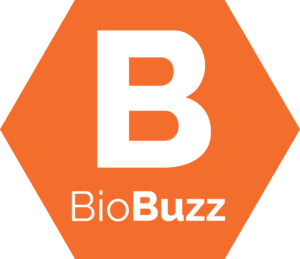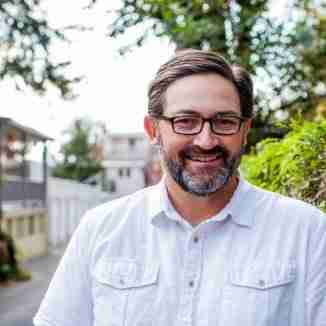
Seven Successful BioHealth Companies Led by African-American Entrepreneurs and Industry Leaders
As we noted in our previous story, “Diversity in Biotech, Industry’s Next Big Challenge,” there is a deep, rich, underappreciated history of African-American innovation in the life sciences and STEM fields.
There is still much work to be done to improve equity across the industry, however. From transdermal diabetes patches and life-saving hemorrhage control systems to advanced biomanufacturing and revolutionary diagnostic testing, this history’s lineage can be traced across the Mid-Atlantic biotech clusters well as throughout the country.
Since diversity is one of the greatest assets across the BioHealth Capital Region (BHCR) and Philadelphia, BioBuzz highlights some of the successful African-American led life science organizations that are making a significant impact on patients helping our BioHealth ecosystems thrive.
Transdermal Specialties Global, Frederick, Maryland.
Founded by former NASA mission specialist Bruce K. Redding Jr., Transdermal Specialties Global (TSG) is attempting to revolutionize drug delivery. Before TSG’s current work on diabetes, Redding’s technology was used in food technology that has developed Hamburger Helper, Fruit Roll-Ups, Nabisco’s Oreos, and Arm and Hammer baking soda. Redding has also been involved in numerous major licensing deals with DuPont and ConAgra across his storied career.
Redding, who holds over 60 patents, is the inventor of microencapsulation technology, which his company is leveraging to develop an insulin patch as a non-invasive, needleless method for insulin delivery.
Currently, approved transdermal patches can only deliver small molecule-based medicines; TSG’s technology, on the other hand, can deliver larger-size molecules like insulin, Parkinson’s medication, and potentially over 170 other drugs that are too large for existing patch delivery systems and require pumps or injections. TSG’s technology uses ultrasound to open skin pores and then push the medicines into the body.
TSG recently demonstrated to the Food and Drug Administration (FDA) that its insulin patch, called the U-Strip, was able to keep patient’s glucose levels in a safe range over multiple days. The U-Strip will now move onto a six-subject trial conducted in the company’s Frederick, Maryland test clinic and, should all go well, move on to Phase III trials in South Korea. TSG also has a patch for Parkinson’s disease that is currently in Phase I trials.
Should TSG’s U-Strip insulin patch be approved by the FDA, it could revolutionize diabetes treatment across the globe by eliminating needles and rendering insulin pumps obsolete, all while delivering superior, less expensive treatment and better quality of life to patients. Redding believes that TSG’s U-Strip insulin patch is just the tip of the iceberg when it comes to TSG’s technology platform’s potential, which could revolutionize drug delivery.
There is more to come from TSG. Keep an eye out for an upcoming In Conversation feature with Redding Jr.

Thrive, Earlier Detection, Baltimore, Maryland
Co-founded by Isaac Kinde, a Johns Hopkins University alumni, Thrive Earlier Detection Corp. has developed a test designed to find multiple cancer types from a single blood draw — including many cancers that lack effective screening tools such as ovarian, pancreatic, liver cancers, and others.
” target=”_blank” rel=”noreferrer noopener”>Dr. Isaac Kinde, a Johns Hopkins University alumni, Thrive Earlier Detection Corp. has developed a test designed to find multiple cancer types from a single blood draw — including many cancers that lack effective screening tools such as ovarian, pancreatic, liver cancers, and others.The company’s lead product, CancerSEEK, is a blood test (also called a liquid biopsy) designed to detect multiple cancer types at the earliest stages possible before noticeable symptoms occur. CancerSEEK is being developed to combine cutting-edge liquid biopsy technology with a machine learning engine, enabling the test to improve with every person screened. It is designed to be integrated into your routine medical care, alongside other existing cancer screening tools.
In late October 2020, Thrive Earlier Detection was acquired by Exact Sciences Corp. for cash and stock considerations worth up to $2.15B.

ARMR Systems, Baltimore, Maryland
Led by Co-founder and CEO Chibueze Ihenacho, ARMR Systems is a Maryland BioPark-affiliated startup developing a wearable hemorrhage control system designed to increase the survivability of traumatic battlefield injury in a situation where advanced medical support is not immediately available. According to the ARMR website, “Our first-of-its-kind system comprises an ergonomically fitted, non-restrictive harness coupled with a tourniquet-style direct pressure device. The low-weight system can be worn passively by the user to be deployed following an incident or quickly applied to the user then engaged afterward. It provides rapid compression of damaged arteries in critical torso junctional areas that traditional tourniquets cannot reach.”
ARMR system’s mission is to make every soldier a medic and to reduce the number of military deaths caused by hemorrhage that occur annually. The company started in an incubator located in Massachusetts and then relocated to Baltimore, Maryland in 2018.
Ihenacho earned his degree in biotechnology from the Georgia Institute of Technology. He is a winner of the Georgia Technologies Alvin M. Ferst Leadership and Entrepreneur Award and was recognized by Entrepreneur Magazine as one of Magic Johnson’s 32 under 32.
ARMR Systems recently announced a seed funding raise of $750K that included a $350,000 joint investment from the University of Maryland, Baltimore, and the Maryland Momentum Fund included funding from the Tamiami Angel Fund.
ARMR Systems was featured in the BioBuzz story, “Baltimore’s Top 10 BioHealth Startup CEOs.”

LucasPye Bio, Philadelphia, Pennsylvania
Tia Lyles-Williams, the founder & CEO of LucasPye BIO (LPB), is on a mission to lower development and manufacturing costs for emerging life science companies while bringing greater diversity to the life science industry.
LPB, founded by Lyles-Williams in 2018, is the only large-scale biologics Contract Development Manufacturing Organization (CDMO) in Pennsylvania. LPB currently offers a wide range of services to its clients, including proprietary cell line development, bioprocess development, consulting, and cGLP small-scale bioprocessing. The company’s unique approach includes the revolutionary digital transformation of development and manufacturing processes and a deep, profound, and authentic commitment to social change unique to the biopharma/biotech space.
Lyles-Williams is a life science industry pioneer. She is the first Queer, African-American woman to own and lead a biotech/biopharma large-scale manufacturing organization. LPB is the first biotech/biopharma company to have 50% of its C-suite executive team seated by women and 85% seated by people of color. Lyles-Williams’ vision is to see this level of diversity mirrored by established life science companies and strengthened by increasing the number of startups founded by women, LGBTQ individuals, and people of color.
LPB’s new 60,000 square foot manufacturing facility will be located in an underserved Philadelphia community, and the company has committed to hiring a percentage of its staff from the surrounding neighborhood.
TruGenomix, Rockville, Maryland
TruGenomix is a service-disabled, veteran-owned precision behavioral health company pioneering the use of genomics in diagnosing and treating behavioral health disorders. The company’s genomic biomarker assay provides an objective assessment of an individual’s risk of developing post-traumatic stress disorder (PTSD).
The company was Co-founded by its CEO Charles Cathlin, an Air Force Academy graduate who served in the Air Force and U.S. Public Health Service for 23 years and former Chief of Staff of the Defense and Veterans Brain Injury Center. Recently joining the company as Chief Medical Officer is Dr. Anne Naclerio. She served in the U.S. Army for 30 years and held positions including Chief of Medical Readiness and Policy for the Army Surgeon General. In 2015 Dr. Naclerio, who established and led the Women’s Health Taskforce in the Army, published the first textbook on female service members’ unique needs in austere environments, entitled Women at War.
The company’s biomarker assay is the first of its kind on the market and integrates with other evidence-based tools as part of the TruGenomix behavioral health platform. The platform provides physicians with a “whole picture” view of their patients’ health, allowing earlier and more effective diagnosis and treatment.
TruGenomix’s mission is to provide solutions that improve the lives, health, and futures of approximately 400 million veterans (21 of whom commit suicide every day), 400,000 first responders, and nearly 700 million individuals worldwide suffering from PTSD.

Quality Biological, Gaithersburg, Maryland
Angela Graham leads Quality Biological (QBI) as its President and CEO. Quality Biological is a family-owned and operated business that has been delivering manufacturing services for over 37 years. The company operates an ISO 9001:2015 certified manufacturing facility in Gaithersburg.
The company is a primary manufacturer of media, buffers, supplements, and reagents for cell culture and molecular biology applications. QBI provides high-performance, high-quality custom products to support consistent and reproducible results in research, method and process validation, preclinical drug discovery, and large-scale production of custom formulations for commercialization.
Graham took the helm of the family business in 2012 after a 15-year career in the industry. The company’s commitment to supporting Gaithersburg and the surrounding community runs deep after nearly four decades in business. QBI commits 5% of its profits to local and regional non-profit organizations and has been a stalwart supporter of the BioHealth Capital Region in its history.

JuneBrain, Inc., Rockville, Maryland
Led by Founder and CEO Dr. Samantha Scott, JuneBrain is a medical device startup focused on neurodegenerative diseases. The company’s first device in development is a wearable, non-invasive imaging device for multiple sclerosis (MS) patients. The device enables MS patients to monitor their disease at home, improving monitoring of attacks and treatment effectiveness. JuneBrain has partnered with Johns Hopkins University and Stanford University to develop the device.
The device is a retinal imaging telehealth solution that, according to the JuneBrain website, “…allows providers to identify new disease activity outside of the clinic for the more than 500 million individuals worldwide suffering from retinal and neurological disease.” The system is completely non-invasive, and JuneBrain analyzes the data and then sent securely to health providers.
You can see how the device works here.
Since its founding in 2017, JuneBrain has won numerous awards and has earned funding from TEDCO’s Pre-Seed Builder Fund and an SBIR grant. Most recently, JuneBrain joined the Springboard Enterprises 2020 Health Innovation Hub Cohort.
- About the Author
- Latest Posts
Steve brings nearly twenty years of experience in marketing and content creation to the WorkForce Genetics team. He loves writing engaging content and working with partners, companies, and individuals to share their unique stories and showcase their work. Steve holds a BA in English from Providence College and an MA in American Literature from Montclair State University. He lives in Frederick, Maryland with his wife, two sons, and the family dog.





